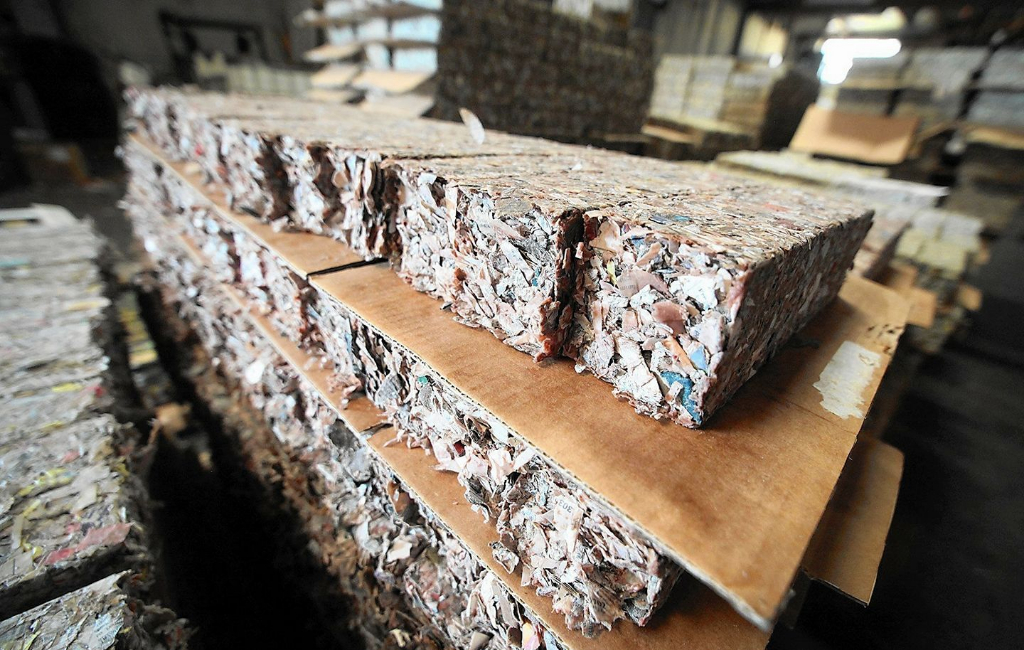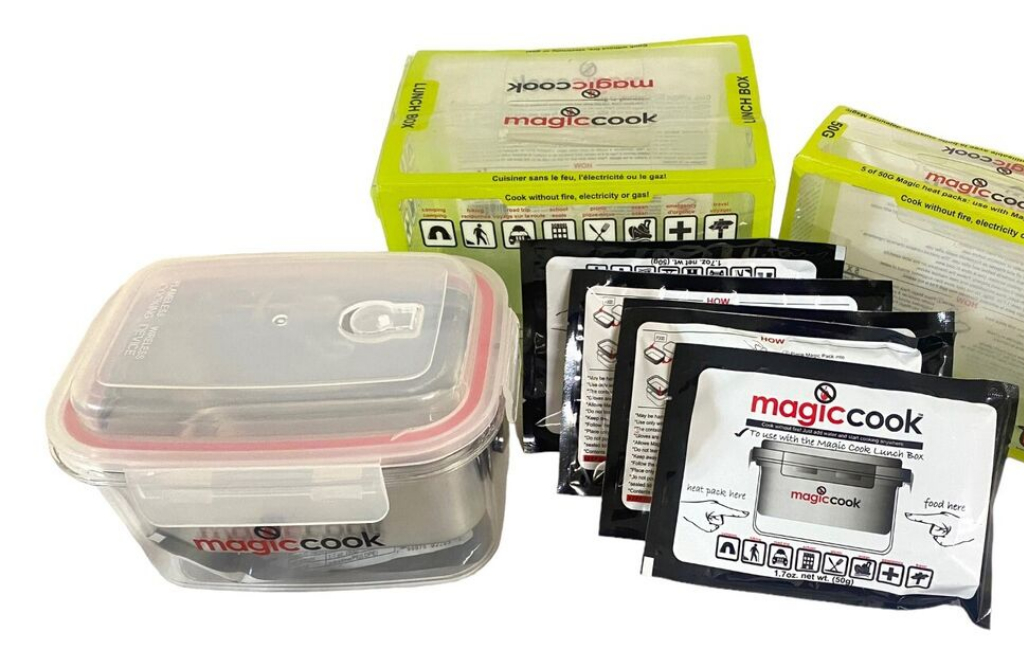Kitchen Safe Timer Lock Box
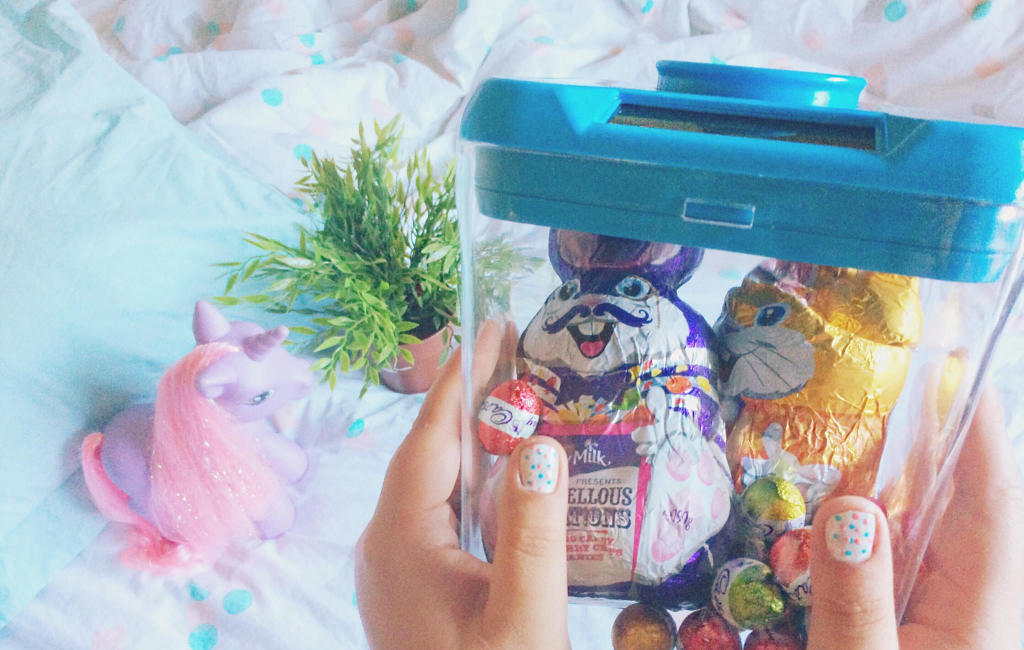

DEAL
EPISODE SUMMARY
🕓 Air Date: November 21, 2014
Asking For:
$100,000 for 5%
Investor:
Lori Greiner, Nick Woodman (50/50)
Deal:
$100,000 for 20%
PRODUCT SUMMARY
The Kitchen Safe is a time-locking container designed to help individuals resist temptations, particularly in relation to unhealthy food choices. It is an innovative solution to combat junk-food temptation and promote healthier habits.
WATCH HERE
IN A RUSH?
Click these to jump to the section you want to read.
Background Story
Ryan Tseng and David Krippendorf, the innovative minds behind Kitchen Safe, are based in the bustling city of San Francisco, California. The duo, united by a common goal to tackle the pervasive issue of junk-food temptation, brings a blend of diverse experiences to their venture. Ryan Tseng, with a keen understanding of the challenges associated with unhealthy food choices, recognized the omnipresence of temptation – from candy bowls at workplaces to irresistible snacks at home. This awareness stemmed from a personal struggle and a broader societal issue, where 2/3 of Americans were grappling with being overweight.
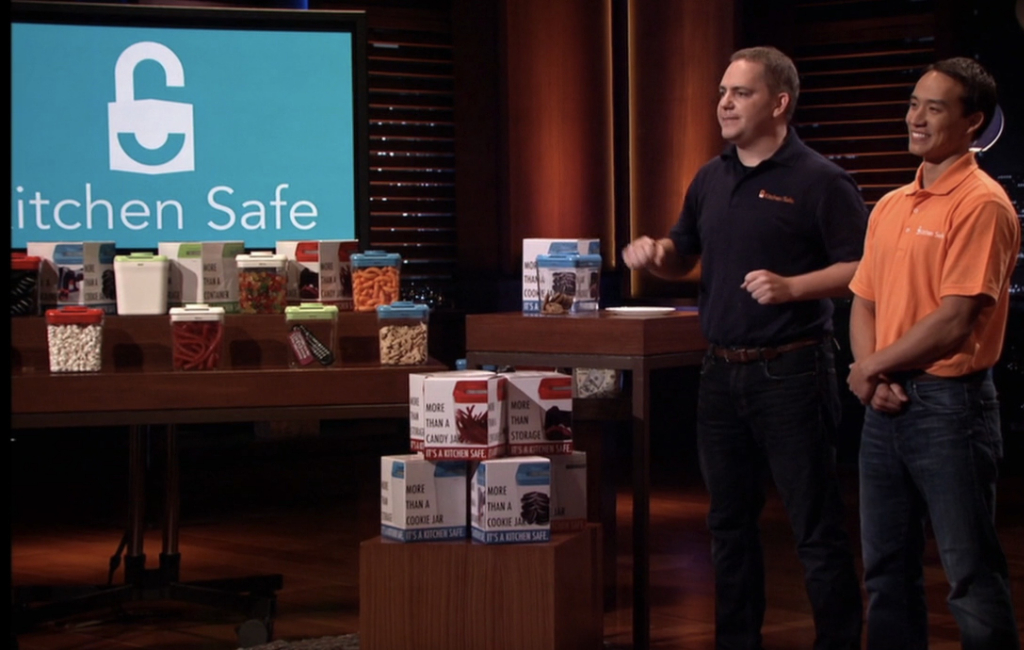
Motivated by a desire to find a practical solution, Tseng, a strategic thinker with a background in problem-solving, teamed up with David Krippendorf to create Kitchen Safe. David Krippendorf, Tseng’s partner in this entrepreneurial journey, shares a similar passion for addressing lifestyle challenges. Together, they conceptualized the Kitchen Safe as a commitment device, drawing inspiration from behavioral psychology. Krippendorf’s background, possibly influenced by his own experiences with unhealthy habits, contributed to the product’s development.
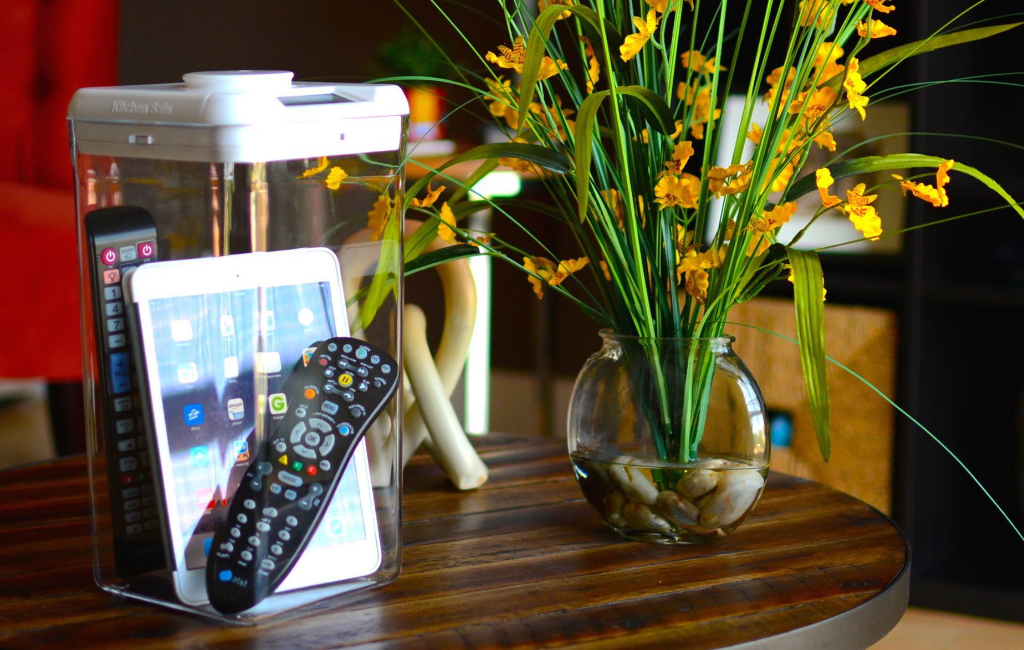
The time-locking container they envisioned was not just limited to food but extended its applications to various tempting items like TV remotes, video games, credit cards, and cellphones. Located in the heart of innovation, San Francisco, Tseng and Krippendorf embarked on a mission to revolutionize how individuals deal with temptation, envisioning a healthier and more disciplined lifestyle. Their backgrounds, coupled with a shared commitment to making a positive impact, set the stage for the creation and growth of Kitchen Safe.
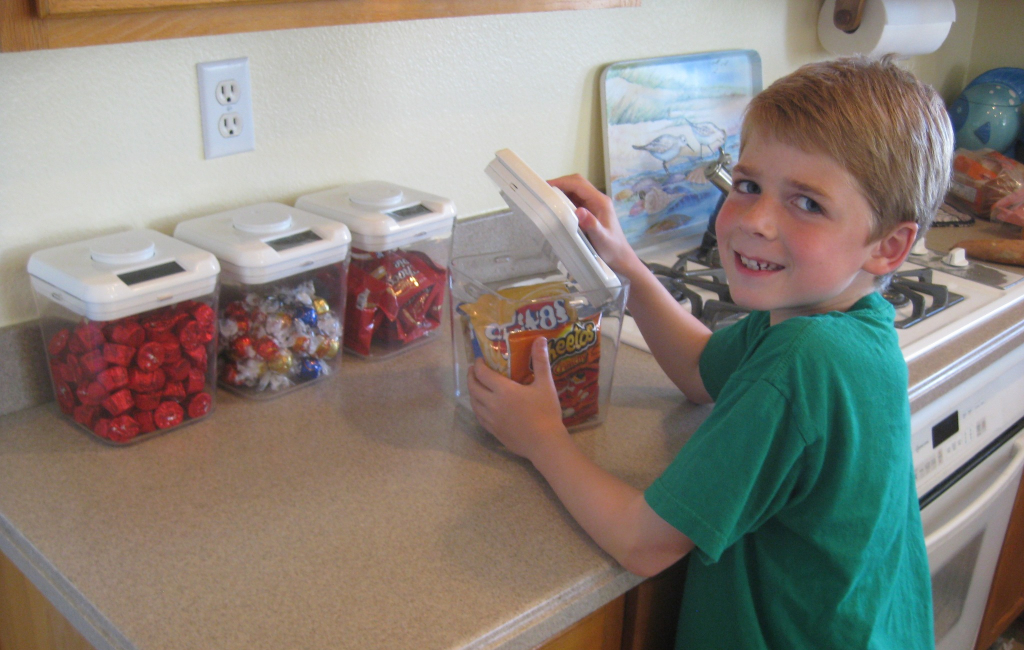
The Product
The Kitchen Safe is a groundbreaking time-locking container designed to empower individuals in resisting temptations and fostering healthier habits. Its simplicity, effectiveness, and versatility make it a unique solution for various scenarios. To use the Kitchen Safe, users place tempting items inside the container, rotate the dial to set the desired timer, and press the dial to activate the lock. Once locked, the container cannot be opened until the timer reaches zero, providing a tangible barrier against impulsive choices.
Beyond its primary application for managing food temptations, the Kitchen Safe offers versatility for securing other items like TV remotes, video games, credit cards, and cellphones, making it a comprehensive commitment device. The product serves as a psychological tool, rooted in behavioral science, offering users a tangible means to overcome temptation and build discipline.
It is available for purchase primarily through online channels, with the founders actively seeking retail partnerships. With a commitment to innovation, the founders are working on reducing manufacturing costs to make the product even more accessible. The Kitchen Safe’s user-friendly design, coupled with its proven efficacy, positions it as a practical solution for those striving to make positive lifestyle changes.
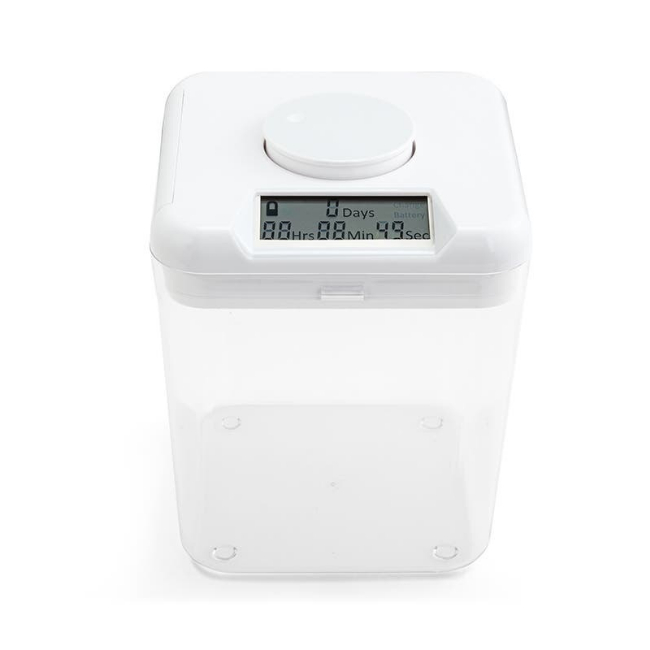
How It Went
The company’s position before Shark Tank
Kitchen Safe has demonstrated a promising trajectory in its relatively short 11-month existence. With a total sales figure of $300,000, the company has primarily operated through online channels, constituting about 90% of its sales through direct channels. The founders, Ryan Tseng and David Krippendorf, have initiated efforts to expand their reach, approaching retailers and securing a purchase order with HSN. The founders mentioned engaging with manufacturers’ representatives who have shown enthusiasm about the product, paving the way for potential collaborations with large-scale retailers.
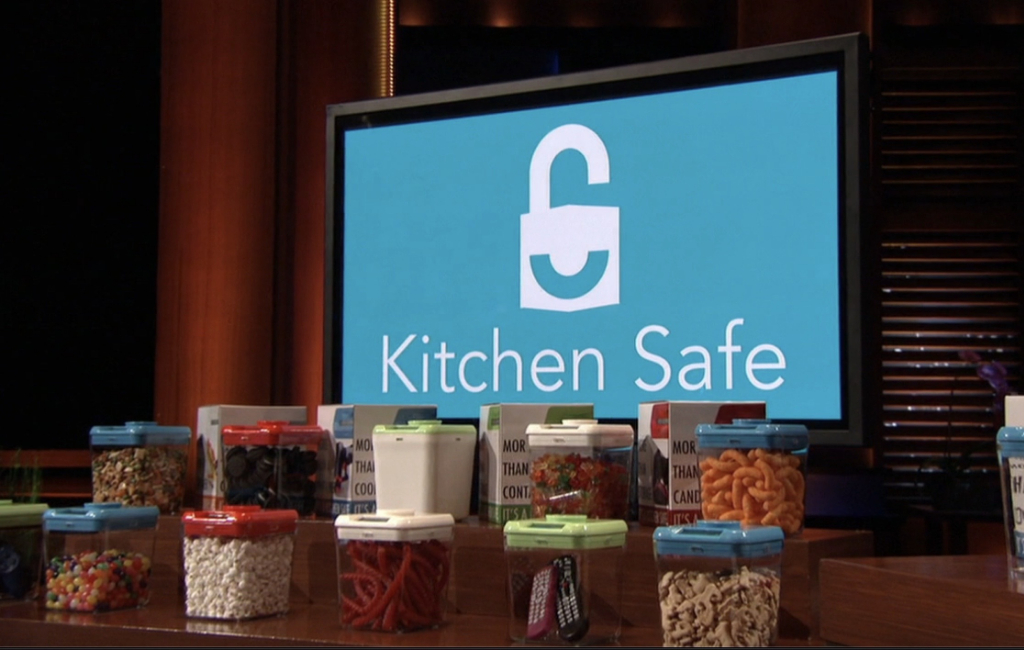
The customer base for Kitchen Safe is diverse, encompassing individuals seeking a solution to overcome various temptations, from unhealthy snacks to distractions like TV remotes and video games. The commitment device has garnered positive feedback, with customer testimonials highlighting its impact on promoting healthier habits. In terms of funding, the founders sought a $100,000 investment in exchange for a 5% equity stake during their appearance on Shark Tank.
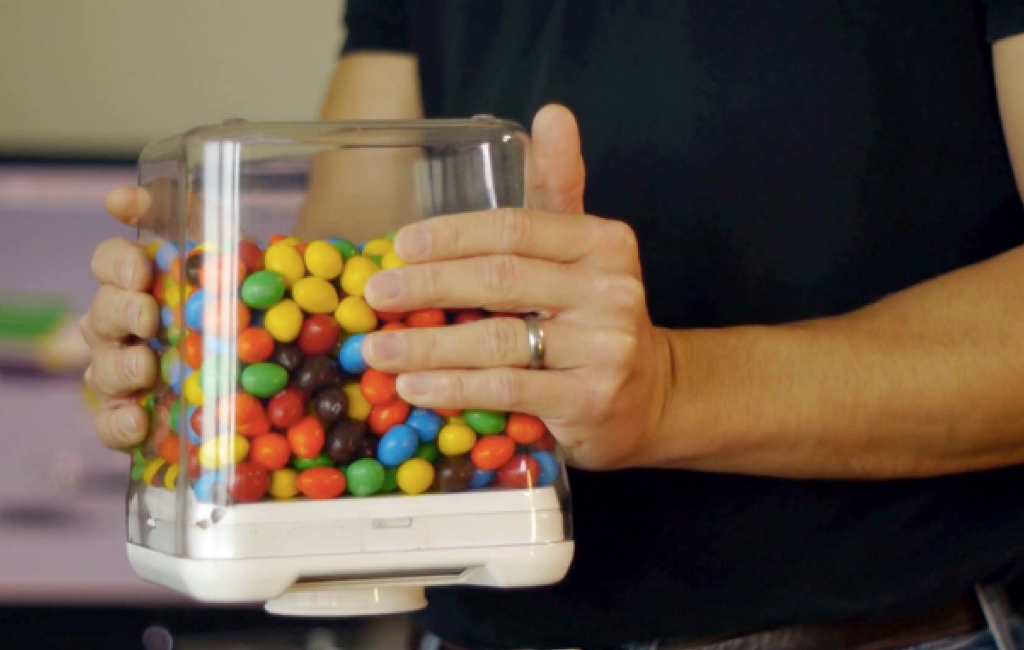
This infusion of capital is expected to support the company’s growth initiatives, including marketing, product development, and potentially expanding its retail presence. The company’s structure and future plans were not explicitly outlined, but the founders conveyed their ambitious goal of building Kitchen Safe into a $100 million-a-year company, emphasizing a focus on scalability and market expansion.
The Negotiations:
The negotiations for Kitchen Safe on Shark Tank were marked by a blend of skepticism, passion, and strategic maneuvering. The founders, Ryan Tseng and David Krippendorf, entered the Tank seeking $100,000 for a 5% equity stake, valuing their company at $2 million. The initial reception was met with skepticism from Kevin O’Leary, who characterized the product as potentially expensive and dismissed it as a “piece of crap.” However, Daymond John recognized the emotional connection and purpose behind the product, offering $100,000 for a 20% equity stake.
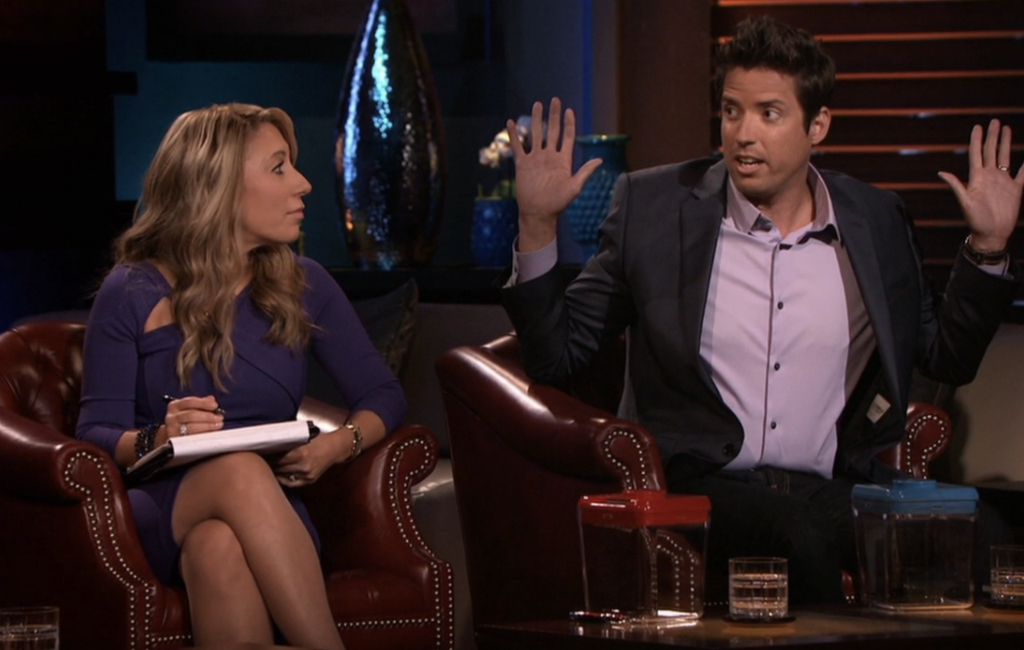
Lori Greiner and Nick Woodman joined forces, revising their offer to match Daymond’s – $100,000 for 20% equity. The negotiation took an unexpected turn when Kevin O’Leary, known for his sharp critiques, exited the deal, expressing his focus on profit rather than personal attachment. This led to a passionate exchange where the founders defended their commitment to making a positive impact and helping people overcome unhealthy habits. In a surprising twist, Lori Greiner and Nick Woodman further revised their offer, aligning with Daymond John’s terms.
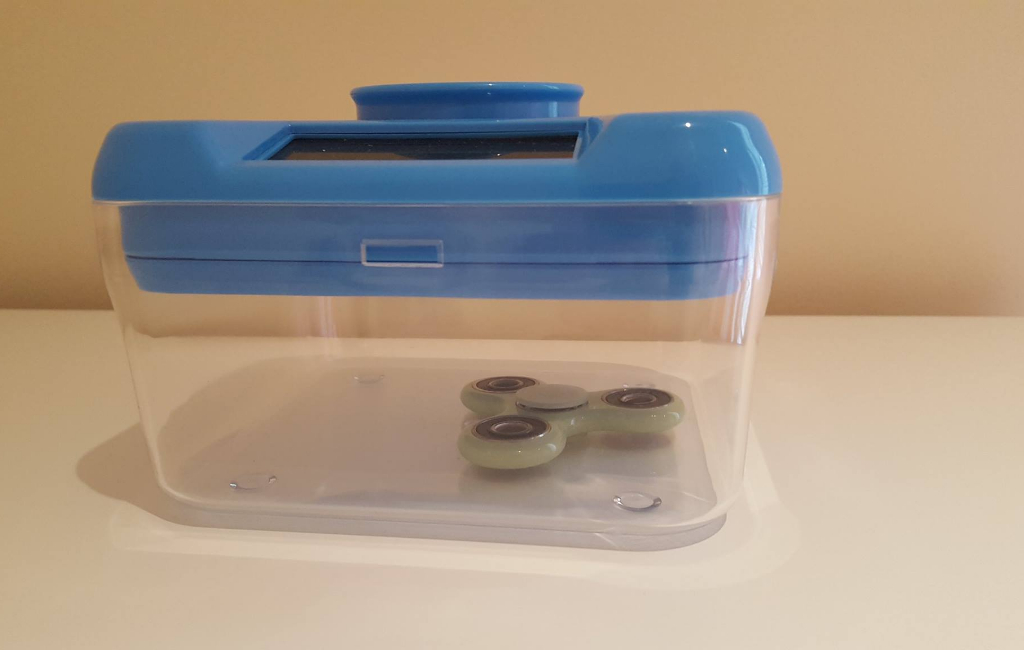
They offered $100,000 for a 20% equity stake, emphasizing their belief in the product’s purpose and the potential for positive change it could bring to users’ lives. Ultimately, the founders accepted Lori Greiner and Nick Woodman’s offer, expressing their excitement about working with the Sharks to scale Kitchen Safe into a substantial business. The negotiation showcased the founders’ determination, the Sharks’ varying perspectives, and the ultimate alignment on a deal that recognized the product’s potential for both profitability and societal impact.






